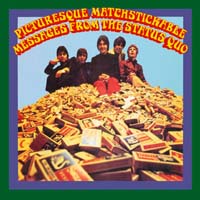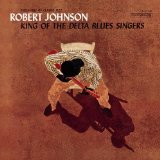2025-01-06
Dissecting the Legacy of Genesis: Why Their Music Continues to Divide and Conquer
When it comes to progressive rock, the band Genesis has managed to both inspire and divide audiences for decades. From chart-topping hits such as “Land of Confusion” and “Mama”, which brought their fusion of prog rock with mainstream sensibilities into the public eye, to an ever-evolving line up that changed the sound drastically from album to album – love them or hate them – you can’t deny their influence on modern music. In this blog post we will explore both sides of the coin while examining what makes Genesis so memorable across generations in spite of its divisive nature.
When it comes to progressive rock, few bands can claim the same impact and cultural significance as Genesis. From their early beginnings in the late 1960s as a psychedelic rock outfit to their dominant years in the 70s and 80s with a string of hits that crossed over into the mainstream, Genesis has always been known for pushing boundaries, defying expectations, and challenging the norms of what rock music could be. But for as many fans as they’ve gained over the years, they’ve also drawn in just as many vocal detractors who dismiss their music as pretentious, overblown, and self-indulgent. So what is it about Genesis that continues to divide audiences even after all these years? Let’s dive in and find out.
Genesis was always a band that refused to be pigeonholed, and that refusal to be confined to a single genre or sound is what has made them such a fascinating and intriguing band for so many people. Whether you prefer the early days of Peter Gabriel’s theatrical antics and whimsical storytelling or the more streamlined, pop-infused era of Phil Collins on vocals, Genesis has always had something for everyone. One of their greatest strengths is their willingness to experiment and take risks, from the intricate arrangements of “Supper’s Ready” to the catchy hooks of “Invisible Touch”. But with experimentation sometimes comes excess, and it’s this tendency towards overindulgence that has given them a reputation as a band that’s more concerned with technical prowess than emotional resonance.
Yet to dismiss Genesis as simply cold and mechanical is to miss out on the deeply human moments that are scattered throughout their discography. Whether it’s the poignant balladry of “Follow You Follow Me” or the hauntingly beautiful “Afterglow”, there are plenty of moments where the band lets their guard down and reveals a vulnerability and sensitivity that is as powerful as any of their more bombastic compositions. And while their music can sometimes feel insular and self-referential, there are just as many instances where they tackle political and social issues head on, such as the anti-war rhetoric of “The Knife” or the environmental concerns of “Land of Confusion”.
Of course, it’s impossible to talk about Genesis without mentioning their intricate and complex musical arrangements. This is a band that prides itself on its technical prowess, and it’s easy to get lost in the labyrinthine structures of songs like “Dancing with the Moonlit Knight” or “Domino”. But while the complexity of their music can be intimidating at times, what’s truly remarkable is how effortless they make it all sound. This is a band that always knew how to balance virtuosity with accessibility, and even in their most ambitious moments they never lost sight of the importance of melody and songcraft.
But perhaps what has made Genesis endure for so many years is their ability to constantly evolve and adapt. From the raw energy of their early albums to the glossy pop sheen of their later work, they never stayed still for too long. And while not every experiment was a success, their willingness to take risks and try something new is what has kept them relevant and interesting for so long. It’s this refusal to rest on their laurels and rely on past glories that has made Genesis an enduring and vital force in the world of rock music.
Genesis is a band that has always courted controversy and divisiveness, but at the end of the day it’s impossible to deny their impact and influence on modern music. Their willingness to push boundaries and take risks has inspired countless musicians, and even those who dismiss their music as pretentious or overblown can’t deny the sheer technical brilliance on display in their music. Whether you love them or hate them, there’s no denying that Genesis is one of the most important and innovative bands in the history of progressive rock.
When it comes to progressive rock, few bands can claim the same impact and cultural significance as Genesis. From their early beginnings in the late 1960s as a psychedelic rock outfit to their dominant years in the 70s and 80s with a string of hits that crossed over into the mainstream, Genesis has always been known for pushing boundaries, defying expectations, and challenging the norms of what rock music could be. But for as many fans as they’ve gained over the years, they’ve also drawn in just as many vocal detractors who dismiss their music as pretentious, overblown, and self-indulgent. So what is it about Genesis that continues to divide audiences even after all these years? Let’s dive in and find out.
Genesis was always a band that refused to be pigeonholed, and that refusal to be confined to a single genre or sound is what has made them such a fascinating and intriguing band for so many people. Whether you prefer the early days of Peter Gabriel’s theatrical antics and whimsical storytelling or the more streamlined, pop-infused era of Phil Collins on vocals, Genesis has always had something for everyone. One of their greatest strengths is their willingness to experiment and take risks, from the intricate arrangements of “Supper’s Ready” to the catchy hooks of “Invisible Touch”. But with experimentation sometimes comes excess, and it’s this tendency towards overindulgence that has given them a reputation as a band that’s more concerned with technical prowess than emotional resonance.
Yet to dismiss Genesis as simply cold and mechanical is to miss out on the deeply human moments that are scattered throughout their discography. Whether it’s the poignant balladry of “Follow You Follow Me” or the hauntingly beautiful “Afterglow”, there are plenty of moments where the band lets their guard down and reveals a vulnerability and sensitivity that is as powerful as any of their more bombastic compositions. And while their music can sometimes feel insular and self-referential, there are just as many instances where they tackle political and social issues head on, such as the anti-war rhetoric of “The Knife” or the environmental concerns of “Land of Confusion”.
Of course, it’s impossible to talk about Genesis without mentioning their intricate and complex musical arrangements. This is a band that prides itself on its technical prowess, and it’s easy to get lost in the labyrinthine structures of songs like “Dancing with the Moonlit Knight” or “Domino”. But while the complexity of their music can be intimidating at times, what’s truly remarkable is how effortless they make it all sound. This is a band that always knew how to balance virtuosity with accessibility, and even in their most ambitious moments they never lost sight of the importance of melody and songcraft.
But perhaps what has made Genesis endure for so many years is their ability to constantly evolve and adapt. From the raw energy of their early albums to the glossy pop sheen of their later work, they never stayed still for too long. And while not every experiment was a success, their willingness to take risks and try something new is what has kept them relevant and interesting for so long. It’s this refusal to rest on their laurels and rely on past glories that has made Genesis an enduring and vital force in the world of rock music.
Genesis is a band that has always courted controversy and divisiveness, but at the end of the day it’s impossible to deny their impact and influence on modern music. Their willingness to push boundaries and take risks has inspired countless musicians, and even those who dismiss their music as pretentious or overblown can’t deny the sheer technical brilliance on display in their music. Whether you love them or hate them, there’s no denying that Genesis is one of the most important and innovative bands in the history of progressive rock.
Tag: Genesis, music artist, best songs, artist career
2022-01-01
Tha Dogg Pound: The Good and The Controversial in West Coast Hip-Hop
As one of the most influential hip-hop groups in the west coast rap scene, Tha Dogg Pound has been creating a wide range of music for over two decades. Although their subject matter can often be controversial and their lyrics are often explicit, there is no denying that this musical duo's beats and rhymes have had an immense influence on popular culture...read more
2022-11-01
Unveiling Aloe Blacc's Musical Career: From Humble Beginnings to Timeless Classics
Aloe Blacc has been making music for over two decades and his magic touch continues to make waves in the music industry. The California native is a singer, songwriter and record producer that has made a name for himself in the music scene...read more
2022-11-01
The Musical Biography of Mala: From Humble Beginnings to Iconic Albums
Mala, also known as Mark Lawrence, is a UK-based dubstep producer and DJ. He is widely regarded as one of the pioneers of the dubstep genre and has been instrumental in shaping the sound of dubstep over the last two decades...read more
2022-11-01
Joan Osborne: A Journey Through Time and Music
Joan Osborne is an American musician known for her emotive voice, catchy melodies, and lyrical depth. She has had a diverse music career, spanning various genres of music and recording more than ten albums...read more
2022-11-01
The Legendary Status Quo: A Musical Biography
When it comes to rock music, there are few bands that have left such an indelible mark on the genre as Status Quo. With their distinct boogie rock sound, they became one of the most famous bands in the UK and Europe and were influential in shaping rock music as a whole...read more
SUGGESTED PLAYLISTS








